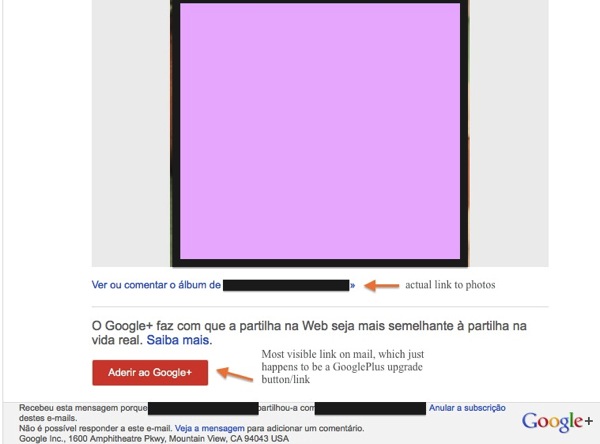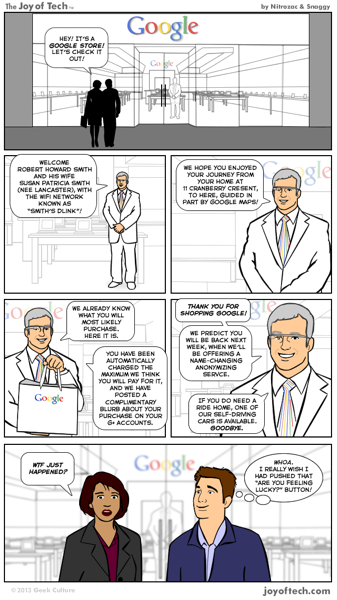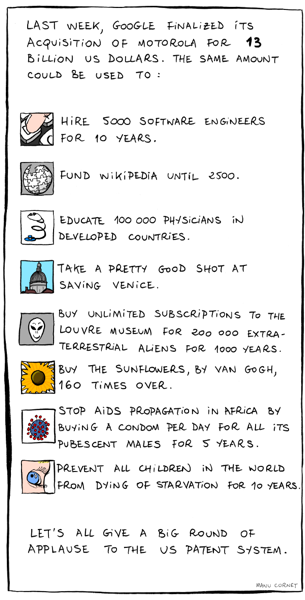We can learn a lot from observing this transition of power. It goes to show that social products are just as mortal as the people who use them. They grow old and long for the youth they once had. They become set in their ways and burdened by their legacy. They are subject to the ebb and flow of cultural evolution and the fickleness of popular opinion.
What was cool in the 70s wasn’t cool in the 80s. What became cool in the 80s was no longer cool in the 90s. Social networks are susceptible to the same shift in trends and fashion that we’ve witnessed in society before our social lives extended into the digital world. This is why social networks, like Google+ (where I worked for one year), are struggling even more than Facebook to get a foothold in the future of social networking. They are betting on last year’s fashion – they’re fighting Facebook for the last available room on the Titanic when they should be looking at all of the other ships leaving the marina.
It wasn’t too long ago that we thought nothing could stop Facebook. That era has come to an end. There will always be room for new and exciting ways to share and connect with the people that matter in your life.
Chrys Bader
Google Plus is specially struggling ’cause they’re actively forcing people to become a member instead of letting it grow on its own merits. That fact that they don’t succeed in in growing by its own merits is simply explained by the fact that they have absolutely no merit whatsoever.
By trying too hard to be a replica of Facebook, you essentially get the same product in different packaging. And if there isn’t any specific advantage why would I change? Sure, G+ had ‘circles’ but that’s not an ‘advantage’ in itself. it’s essentially a ‘feature’, easily replicated by FB in a couple of months. An advantage would be something different that FB couldn’t or didn’t want to replicate. Like for example anonymity.
It’s one of the main reasons why I use Twitter. I don’t particularly like the silly 140char limit. Nor the fact that everything is public by default. But for registering with it, I was asked two things: an email address and a username. Not my ‘real name’, not my job, not my Linkedin profile, not age nor anything. A mail and a username. It’s the exact same thing why other platforms such as Tumblr are a strong niche. Despite Mr. Zuckerberg talks about the ‘death of privacy’, people still expect some sort of privacy. They are okay sharing their nude bodies or intimate thoughts or silly interests, they just want to do it on their terms and in compartmentalised, relative anonymity.
Facebook started as a simple social network space and did this ok. At first the issue of the real name wasn’t even an issue. Then it was, but Facebook was still too insignificant to become an issue. Then it ended up not being ‘insignificant’ at all but it was already too ‘ingrained’.
Now G+ is created to contend this space and its first option is to enforce the real name policy not only on G+ but on every associated Goole service as Youtube! What exactly is the advantage of that to actual people using it? It’s no wonder why it’s failing, even as other smaller networks are actively growing and removing audience and content from Facebook.
I use this nickname of maccouch for a couple of years now. I have, however, other nicknames that i use since the beginning of the ‘interwebs’. They are a ‘person’ on itself, as valid and consistent id as my real name. I just don’t like to have it directly attached to me because i like that different aspects of my life remain separated. By trying too hard to enforce the ‘real name’ feature in order to create a better profile and sell more to advertisers they just end up making people retreat to the same ‘social strategies’ you employ on real life. Don’t tell anyone about your deep issues, don’t show that you’re in problem, share it only with your closest friends and family.
Now, if that’s the point, then why do we need the social networks again? Their advantage was that you could be talking about your issues with anyone else in the world. And/or share your taste of weird Japanese manga about fighting avocado fruits. And do it all without exposing or sharing too much of the other aspects of your life.



